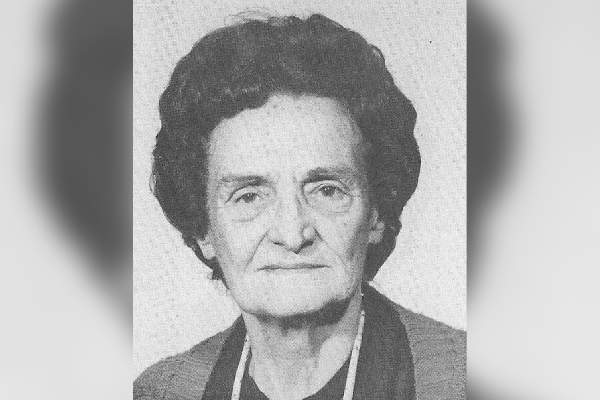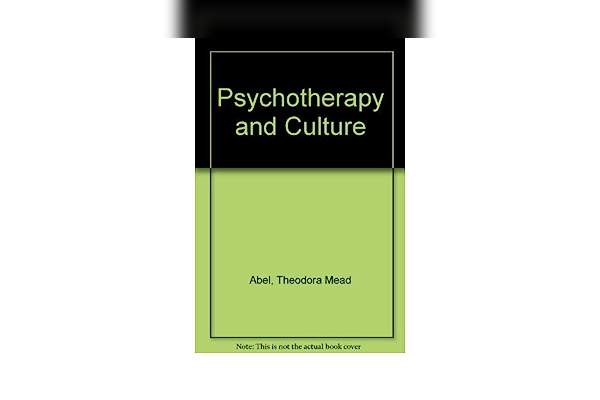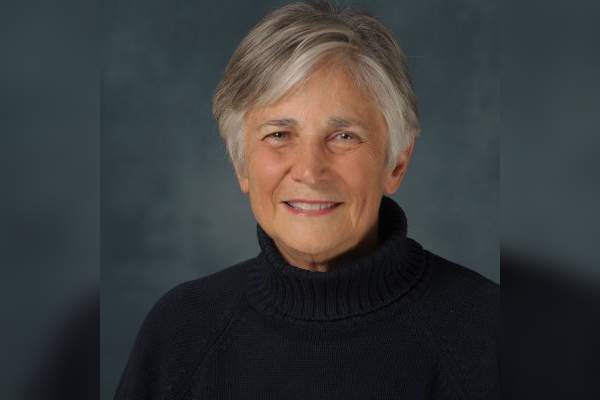Theodora Mead Abel Biography: Pioneer of The Innovative Cross-Cultural Psychology

Theodora Mead Abel Biography. Image Source: Instagram.
- Full Name Theodora Mead Abel
- Age 99 yrs
- Birth Date September 9, 1899
- Country America
- Relationship Status Married
- Spouse Theodore Abel
- Nationality American
- Profession Psychologist and Educator
- Children Caroline (Abel) Lalire, Zita (Abel) Emerson and Peter Abel
- Awards and honors American Psychological Foundation's Gold Medal Award
- Education Vassar College, Columbia University and University of Paris.
- Death Date December 2, 1998
What do you get when you combine a passion for psychology, an anthropologist’s eye for culture, and a fearless attitude? The answer: Theodora Mead Abel.
This pioneering woman revolutionized the field of cross-cultural psychology with her innovative approach to studying the Indians of New Mexico and beyond. Her work earned her the respect of many, including the tribes in Albuquerque, who affectionately called her “grandmother.”
Join us as we uncover the Theodora Mead Abel biography, a trailblazer who broke down barriers and paved the way for future generations in the field of psychology. Get ready to be inspired and amazed by this remarkable woman’s life and work!
Early Life and Career: The Making of a Psychologist
Theodora Mead Abel was born in Newport, Rhode Island, on September 9, 1899. She received her Bachelor of Arts degree from Vassar College in 1921, followed by a Master of Arts and Doctorate degree in psychology from Columbia University in 1924 and 1925, respectively. While a graduate student, she met and became friends with Margaret Mead, the renowned anthropologist, with whom she shared the same last name at the time but was not related.
Dr. Abel began her career teaching at the University of Illinois and Sarah Lawrence College before becoming the director of research at the Manhattan Trade School for Girls. In 1940, she joined Letchworth Village Psychiatric Center in Rockland County, NY, as a research psychologist. Later, she joined the Postgraduate Center for Mental Health in Manhattan, where she was director of psychoanalysis.
Despite her successful career in family therapy in New York, Dr. Abel’s interest in cross-cultural psychology grew after she retired. She moved to New Mexico in 1971 to pursue her research on the Indians of the region. Dr. Abel passed away on December 2, 1998, leaving behind a remarkable legacy in the field of psychology and anthropology.
Cross-Cultural Psychology: Dr. Abel’s Innovative Approach
The popular psychologist was interested in cross-cultural psychology, which began during her time in New York, where she worked with diverse populations. However, it was in New Mexico where she found her niche, studying the Indians of the region and their unique cultural perspectives.
View this post on Instagram
The renowned educator’s approach to cross-cultural psychology was innovative and groundbreaking. She recognized the importance of understanding cultural backgrounds when working with patients and developed techniques to incorporate cultural beliefs and practices into therapy sessions.
Dr. Abel believed that understanding cultural differences was essential for effective therapy and that it was necessary to consider the role of culture in shaping an individual’s behavior.
ALSO READ: Get to learn about the biography of Shonto Begay.
Collaborations with Dr. Samuel Roll: Research with Mexicans and Indians
Dr. Abel’s collaborations with Dr. Samuel Roll, a professor of psychology at the University of New Mexico, were instrumental in her work on cross-cultural psychology. Together, they conducted studies of various communities, including the Mescalero and Jicarilla Apaches, the Navajo, and the people of the Laguna, Taos, Santo Domingo, and other pueblos in northern New Mexico.
Their studies focused on a wide range of topics, including family dynamics, cultural beliefs, and mental health issues. Dr. Abel’s expertise in family therapy and Dr. Roll’s background in anthropology and psychology made for a powerful partnership that produced groundbreaking research.
One of their most significant contributions was their work on the importance of family involvement in therapy. Dr. Abel recognized the significance of family dynamics in the lives of her patients and asked family members to join in therapy sessions. Dr. Roll’s knowledge of cultural beliefs and practices helped them to develop techniques that incorporated cultural perspectives into therapy.
Dr. Abel and Dr. Roll’s collaborations resulted in several publications, including the revised edition of Dr. Abel’s book, “Psychotherapy and Culture” (University of New Mexico Press, 1987), written with Rhoda Metraux. Their work continues to be an inspiration for cross-cultural psychologists and researchers today.

Theodora Mead Abel Biography. Image Source: Amazon.com
Similarly, you would love to explore the biography of Hu Shuli.
Therapy with Indian Patients: The Importance of a Balance of Life’s Forces
The educator was particularly skilled in therapy with Indian patients and was given the title “grandmother” by several tribes in Albuquerque. Her approach to therapy was deeply rooted in cultural understanding, and she recognized the importance of incorporating cultural beliefs and practices into therapy sessions.
Dr. Abel believed that a balance of life’s forces was essential for good mental health. She understood that an individual’s mental and emotional well-being was connected to their environment, family, and community. Her therapy sessions with Indian patients often included talking circles, where patients could share their experiences and feelings in a safe and supportive environment.
Abel’s approach to therapy was holistic, recognizing the interconnectedness of the mind, body, and spirit. She believed that it was essential to consider cultural perspectives when working with patients and that a lack of cultural understanding could lead to misdiagnosis and ineffective treatment.
Dr. Theodara’s work with Indian patients was groundbreaking and demonstrated the importance of cultural sensitivity in therapy. Theodora Mead Abel biography continues to influence cross-cultural psychology and therapy today, reminding us of the significance of cultural understanding in mental health treatment.
Legacy and Recognition: Dr. Abel’s Lifetime Achievement and Impact on Psychology
Theodora Mead Abel biography has a profound impact on the field of psychology was significant, and her contribution to cross-cultural psychology was groundbreaking. Her innovative approach to therapy and research demonstrated the importance of cultural understanding in mental health treatment.
In 1997, Theodora was awarded the American Psychological Foundation’s Gold Medal Award for life achievement when she was 98 years old. The award recognized her lifetime of work and her significant contribution to the field. Dr. Abel’s impact on psychology is evident in the continued focus on cultural sensitivity and understanding in research and therapy today.
Theodora’s legacy continues to inspire psychologists and researchers today, reminding us of the importance of cultural sensitivity in mental health treatment. Her groundbreaking work in cross-cultural psychology paved the way for future generations and solidified her place as a pioneer of innovative psychology.
The Editors of Encyclopaedia Britannica. (1998, July 20). Theodora Mead Abel | Women’s Rights, Education Reform & Psychologist. Encyclopedia Britannica.
Feminist Voices – Theodora Mead Abel. (n.d.). Feminist Voices.
Burkhart, F. (1998, December 13). Theodora Abel, 99, psychologist who reached across cultures. The New York Times.
Did you notice an error ?
Please help us make corrections by submitting a suggestion. Your help is greatly appreciated!











